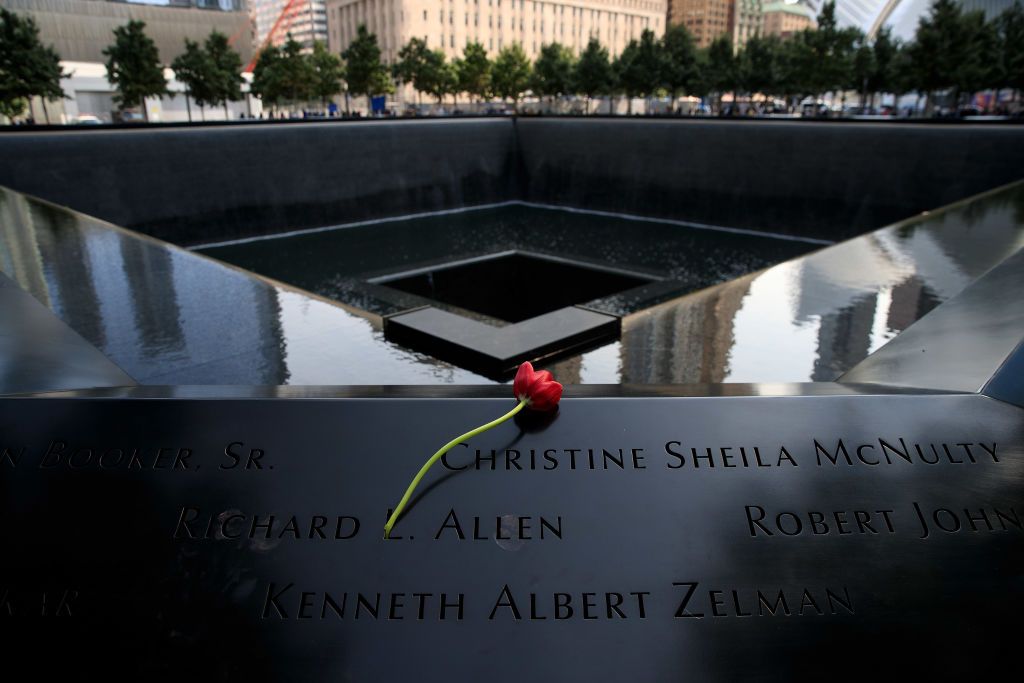
Future payments to victims of the September 11th terrorist attacks will see a decrease in the amount of awards after a large increase in claims.
Rupa Bhattacharyya, the special master of the September 11th Victim Compensation Fund, said in a statement Friday that the $2.375 billion left in the fund will not be enough to fully pay an estimated 19,000 remaining claims.
"We recognize that this is horribly unfair, particularly because we have spent the balance of this program paying claims at full value, and claimants who are coming in now are going to receive less. Unfortunately, the law really leaves us no choice. This is the fairest way we could come up with to do it," Bhattacharyya told the Washington Post on Friday.
According to Bhattacharyya, claims filed before Feb. 2 will be awarded at 50 percent of their value. Claims after that date will be awareded at 30 percent of their value.
"I thought it was very important to try to pay everyone something," Bhattacharyya told the Post. "I did not want to be in a position . . . of paying some people something and some people nothing."
The Compensation Fund began in 2011 and aimed to provide money for deaths and illnesses related to exposure from toxins at the World Trade Center, the Pentagon and a field in Shanksville, Pennslyvania. The fund began with $7.3 billion and to date has paid about $5 billion for an estimated 21,000 claims.
Bhattacharyya said that the fund would have needed $12 billion in order to pay all claims in full, Reuters reports. However, the increase in claims being filed has also contributed to the dwindiling budget.
According to Bhattacharyya, the number of claims have tripled since 2015. She added that the number of serious illnesses related to exposure to toxins from the terrorist have also increased.
Anothe reason in increasing claims, Bhattacharyya said, could be the dormant periods for many cancers and other illnesses.
"Some of the diseases that could arise from exposure to the toxins in the air in the New York City area, we may not see for several years," Bhattacharyya told NPR.
Reacting to the news, Sen. Kirsten Gillibrand (D-NY.) and other members of Congress are looking to allott more money to the fund and extend it past the 2020 end date.
"Cancer rates in the 9/11 first responder community are rising higher than ever, which means the VCF is more important than ever. We cannot tell them, 'Sorry, we don't have the funds for you.' We cannot turn our backs on these heroes – not now, not ever. Remembering 9/11 should be more than a bumper sticker, and that's why I will be reintroducing bipartisan legislation soon with Senator Cory Gardner and others that will ensure that the men and women injured by the toxins at Ground Zero are never forgotten," Gillibrand said in a statement.
Thomas O'Connor, president of the FBI Agents Association, and John Feal, an activist who was injured while working in the rubble at the World Trade Center, are asking that the fund be extended to 2090. That is the same end date as the World Trade Center Health Program that provides medical benefits to those affected by the September 11th attacks.
Uncommon Knowledge
Newsweek is committed to challenging conventional wisdom and finding connections in the search for common ground.
Newsweek is committed to challenging conventional wisdom and finding connections in the search for common ground.
About the writer
To read how Newsweek uses AI as a newsroom tool, Click here.








